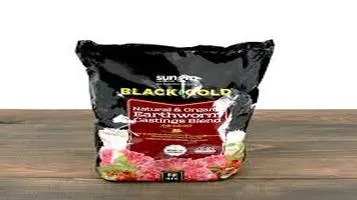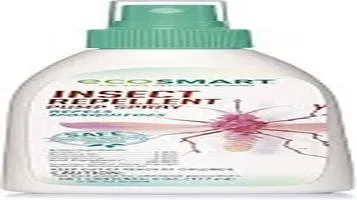Review of Worm Castings: Nature’s Black Gold
Worm castings, often referred to as vermicompost, are a nutrient-rich byproduct of the earthworm digestion process. These dark, soil-like granules are packed with essential nutrients and beneficial microorganisms, making them an excellent organic fertilizer and soil conditioner. Worm castings improve soil aeration, moisture retention, and pH balance, promoting healthier plant growth. Rich in nitrogen, phosphorus, potassium, and trace minerals, they provide a balanced nutrient supply to plants, enhancing root development and increasing resistance to pests and diseases. Unlike synthetic fertilizers, worm castings release nutrients slowly, ensuring long-term nourishment without the risk of burning plants. Eco-friendly and sustainable, worm castings contribute to healthier gardens and landscapes while supporting sustainable waste management practices by recycling organic matter.

In the realm of gardening and sustainable agriculture, few amendments have garnered as much acclaim as worm castings. Often referred to as “nature’s black gold,” worm castings are the byproduct of earthworm digestion, resulting in a nutrient-rich, organic material that can dramatically enhance soil health and plant growth. Having spent considerable time integrating worm castings into my gardening routine, I can categorically say that they offer numerous benefits that make them indispensable for both amateur and professional gardeners alike.
What are Worm Castings?
Worm castings, also known as vermicompost, are essentially the feces of worms. As unappetizing as that might sound, these tiny granules are packed with essential nutrients, beneficial microbes, and organic matter. The process begins with earthworms consuming organic waste—such as kitchen scraps, decomposing plant material, and other biodegradable matter. As the material passes through the worm's digestive system, it is broken down and transformed into a highly fertile and bioavailable form that plants can readily absorb.
Nutrient Content and Benefits
One of the standout features of worm castings is their impressive nutrient profile. They typically contain a balanced blend of essential nutrients, including nitrogen, phosphorus, potassium, calcium, magnesium, and more. This nutrient-rich composition promotes robust plant growth, lush foliage, and increased fruit and flower production.
In addition to macro-nutrients, worm castings are teeming with beneficial microorganisms. These microbes play a crucial role in soil health by aiding in nutrient cycling, improving soil structure, and suppressing plant diseases. The microbial activity in worm castings helps create a thriving soil ecosystem, fostering a symbiotic relationship between plants and their environment.
Soil Structure and Water Retention
Worm castings are also renowned for their ability to improve soil structure. When mixed into the soil, they enhance aeration and drainage, creating an environment where plant roots can breathe and grow more efficiently. Furthermore, the organic matter in worm castings acts like a sponge, retaining moisture and reducing the need for frequent watering. This is particularly beneficial in drought-prone areas or for gardeners looking to conserve water.
Ease of Use and Application
One of the most appealing aspects of worm castings is their ease of use. Unlike synthetic fertilizers, which can be harsh and require precise application to avoid burning plants, worm castings are gentle and safe. They can be applied directly to the soil, mixed into potting mixes, or used as a top dressing for established plants. The slow-release nature of nutrients in worm castings ensures a steady supply to plants over time, reducing the risk of over-fertilization.
For those interested in organic gardening or sustainable practices, worm castings are a perfect fit. They are entirely natural and free from harmful chemicals, making them an eco-friendly choice that promotes long-term soil health.
Personal Experience
In my personal experience, incorporating worm castings into my garden has yielded remarkable results. Plants treated with worm castings exhibit more vigorous growth, healthier foliage, and increased resistance to pests and diseases. For instance, my tomato plants, which previously struggled with nutrient deficiencies and pest infestations, have thrived since I began using worm castings. The fruits are larger, more abundant, and have a richer flavor.
Additionally, I’ve noticed a significant improvement in soil texture and fertility. Areas of my garden that were once compacted and lifeless have transformed into loose, rich soil teeming with earthworms and other beneficial organisms. This transformation has made gardening more enjoyable and less labor-intensive, as the improved soil structure requires less frequent tilling and amendment.
Cost and Availability
While worm castings can be more expensive than conventional fertilizers, their long-term benefits and sustainability make them a worthwhile investment. Many local garden centers and online retailers offer worm castings in various quantities, making them accessible to gardeners of all scales. Additionally, for those interested in producing their own worm castings, vermicomposting systems are readily available and can be set up with minimal effort.
Conclusion
In conclusion, worm castings are a game-changer for anyone serious about gardening and soil health. Their nutrient-rich composition, ability to improve soil structure, and ease of use make them an invaluable addition to any gardening toolkit. The benefits extend beyond just plant health, fostering a sustainable and eco-friendly approach to gardening that aligns with the growing emphasis on environmental stewardship.
Whether you are a seasoned gardener or just starting, I highly recommend giving worm castings a try. Your plants—and the planet—will thank you.






